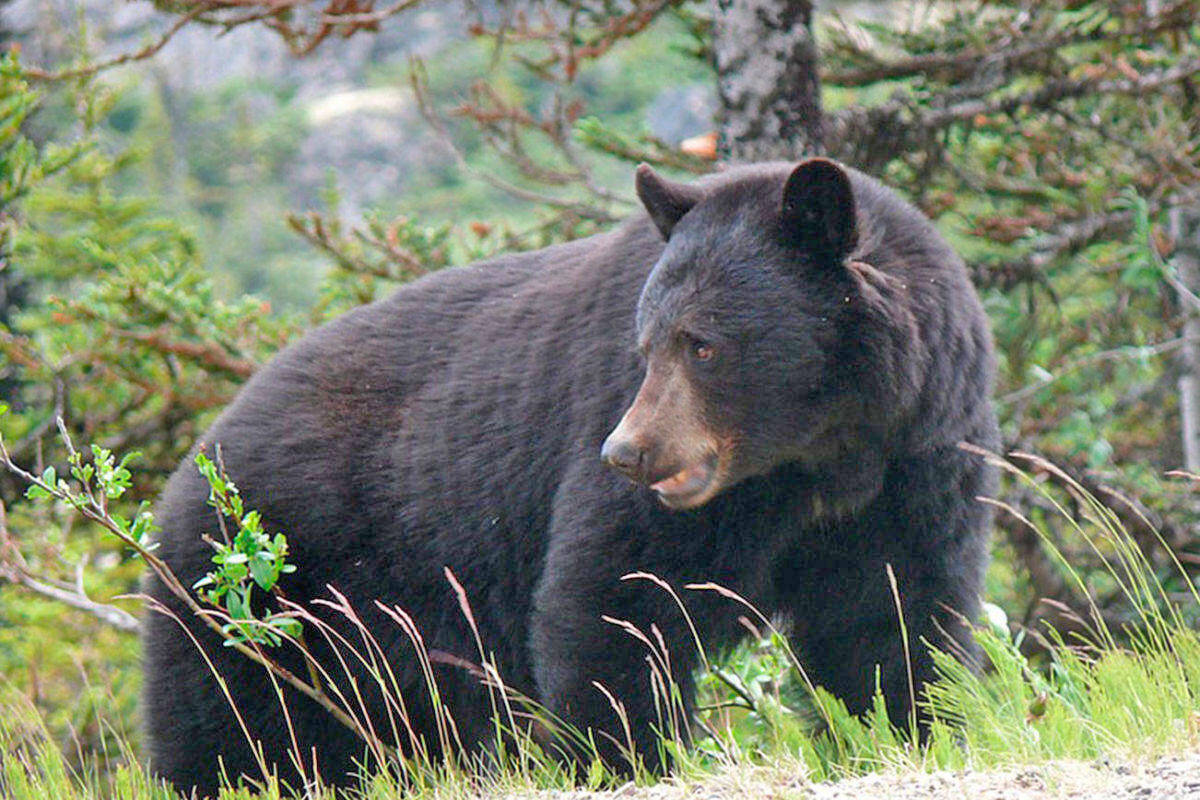The West Coast is failing its local bear population as the death toll caused by unsecured attractants has reached eight this season.
Two bears were killed in Ucluelet last week after becoming conditioned to improperly stored garbage.
“It appears that there’s likely at least one, if not two, more that are what we would call ‘food conditioned,’ actively looking for garbage and finding it and exactly the same thing is happening in Tofino,” WildSafeBC Pacific Rim coordinator Bob Hansen told the Westerly News. “Sadly, the toll is going to keep climbing as the bears keep finding garbage.”
Hansen and WildSafeBC Hitacu-Macoah coordinator Marianne Paquette work to spread education around coexisting with wildlife throughout the West Coast, including door to door canvassing, workshops, social media outreach and in-person events.
“There’s been a lot of effort going on, but unfortunately the bears are giving us a report card and it’s showing that there’s still a lot of problems in our communities,” Hansen said.
“It’s just been continuous this season with the bears able to find things like garbage and such that’s left outside.”
With eight bears now killed this season, Hansen said Conservation Officers are planning to travel to the West Coast for waste management audit patrols, adding the COS has informed him that the conflict numbers on the West Coast are the “worst in their zone.”
He said bear sightings are being reported daily, noting a report came in Sunday morning about a bear trying to get into a chicken coop in Tofino.
“The added dynamic that’s at play right now is that this is the season where the bears are trying to consume as many calories as they can on a daily basis to try to be in the best possible condition to make it through the winter,” he said.
“They’re trying to eat up to 20,000 calories a day so that physiological drive to put on fat is really driving them right now so they’re looking hard for easy calories.”
He said those calories are coming in by way of garbage left outside, improperly mixed composts, outdoor freezers, chicken coops without electrical fencing, pet food left outside, uncleaned barbecues and a variety of other unnatural attractants.
“They’re actively searching our communities and finding all these sorts of things on a daily basis,” he said. “There have been a lot of improvements, but there’s just a lot of work still to be done, as the bears are showing us.”
He added once a bear begins finding consistent sources of unnatural food, its behaviours can escalate, leading to structural damage as it becomes motivated to break into sheds, freezers and other storage spaces searching for more.
He noted larger bears have been coming into town more often than they have in the past.
“Usually the bears that are getting into things are dispersing sub-adult male bears that don’t have their own territories and they get bounced around and end up in town,” he said. “It seems like this year there’s been a culmination of dynamics that are really motivating more animals to take their chances in the community and they’re successfully finding, sadly, unnatural foods in our communities that are keeping them there.”
He said both bears killed last week were adults, though one was significantly emaciated and appeared to have serious health issues.
In order to prevent further deaths, he urges residents to pay closer attention to their attractant management.
“Individuals, families and businesses need to have a hard look at their own situation and ask themselves, ‘Is there anything that we have out that a bear could get into?'” he said.
“This is the year where you’re likely to have issues and, if you do, then that’s going to be part of this chain of events that ends up badly for our bears and for people that end up with damaged sheds, garbage scattered across their yard or lost chickens…It’s just having a hard look and taking those actions to prevent that conflict that could be just a day away or around the corner.”
He encourages anyone wanting more information on how they can prevent wildlife conflicts to reach out to either himself at pacrim@wildsafebc.com or Paquette at hitacu-macoah@wildsafebc.com, adding both coordinators offer updates and tips through their Facebook pages: Facebook.com/wildsafebcpacificrim and Facebook.com/wildsafebchitacumacoah.
“We’re always available and we’re here to work with people,” he said.
Hansen and Paquette are currently hosting a photo contest and asking people to submit photos of themselves taking an action that helps keep wildlife wild and the community safe.
“That could be taking down a birdfeeder, or moving garbage indoors, cleaning their barbecue, or putting electric fencing around their chicken coop,” Hansen said.
“We’re hoping to get lots of pictures and then we’ll use those pictures for educational purposes and we’ve got five really great prizes.”
The deadline for photo submissions is Oct. 3 and more information can be found on either group’s Facebook pages.
andrew.bailey@westerlynews.caLike us on Facebook and follow us on Twitter
READ MORE: Summer turns deadly for black bears in Tofino and Ucluelet
READ MORE: Bear killed after frequenting campground in Ucluelet
READ MORE: Bears feasting on spring’s bounty around Tofino and Ucluelet

